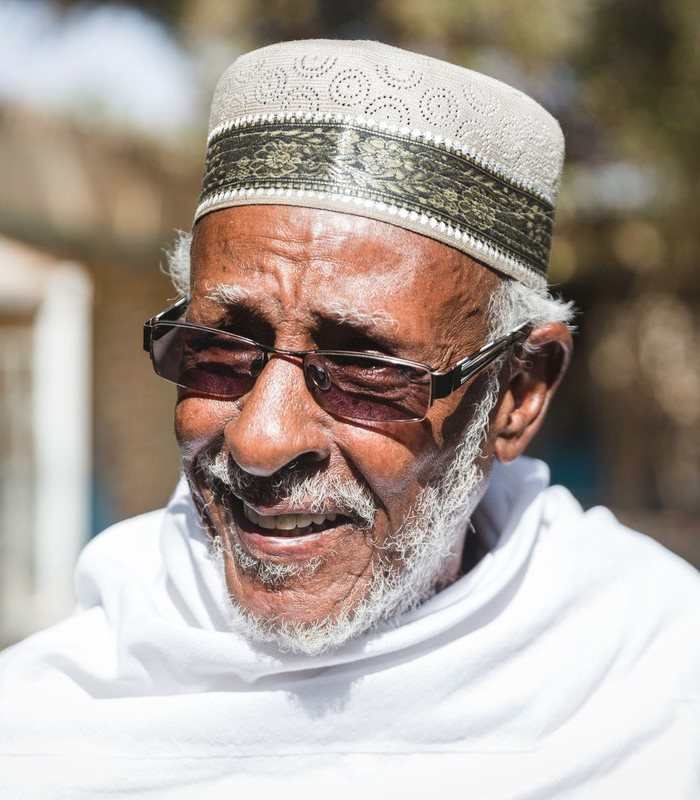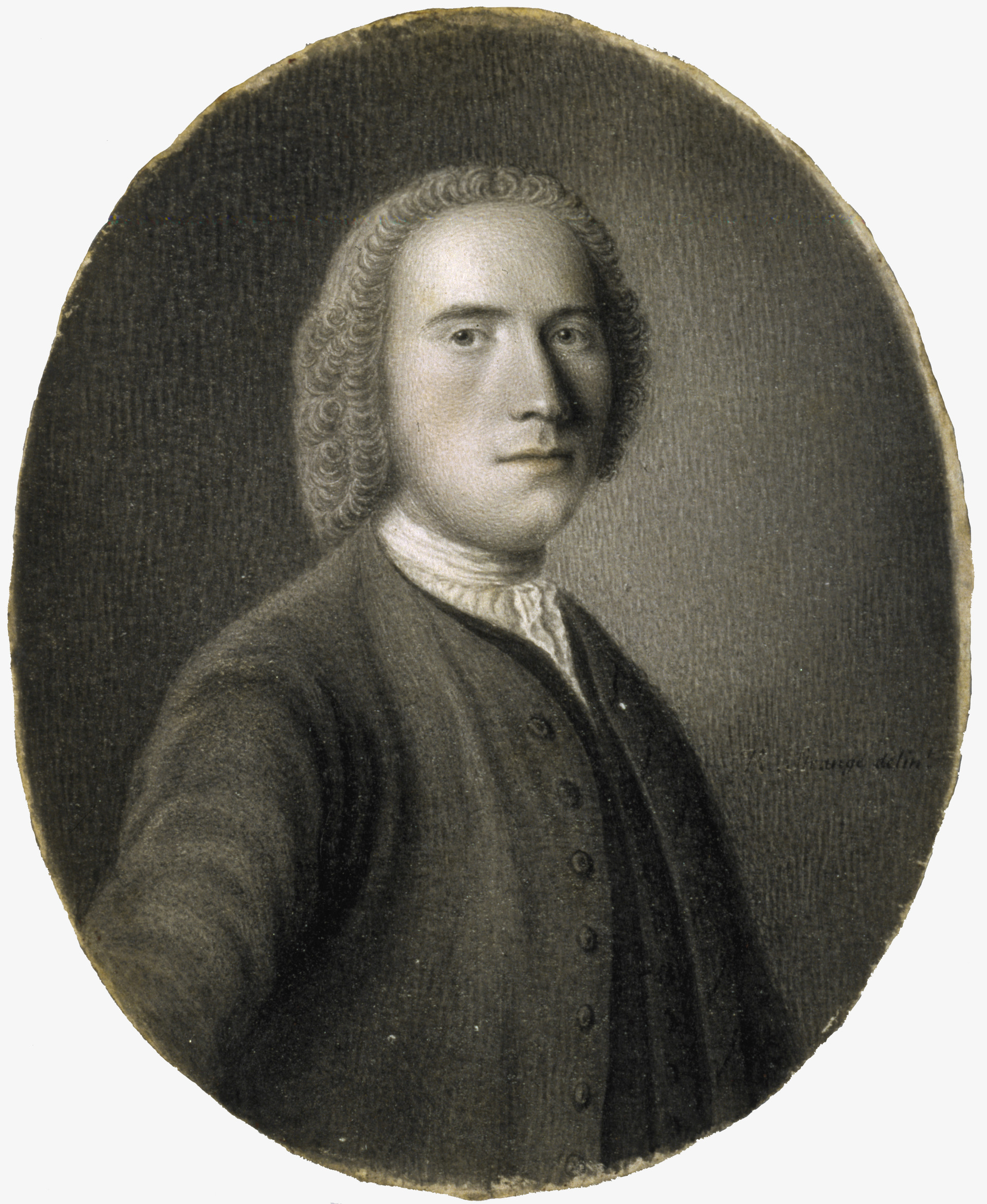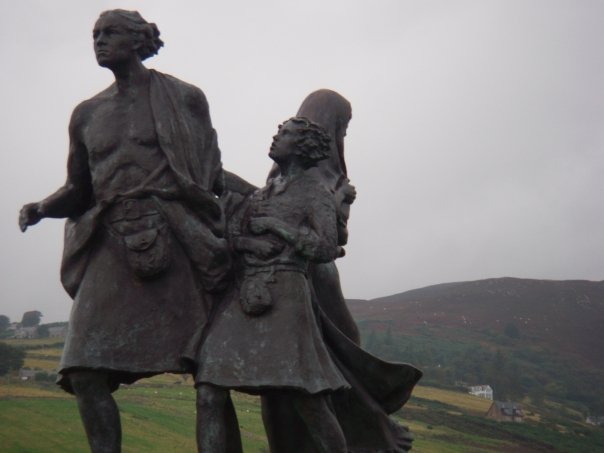|
Appin Murder
The Appin Murder () was the assassination by a concealed marksman of Colin Roy Campbell, the Clan Campbell tacksman of Glenure and factor for the Forfeited Estates Commission, on 14 May 1752. The murder, which took place on the confiscated estate of Clan Stewart of Appin in Lochaber in the west of Scotland, was an act of violent resistance against the large scale clearances taking place on the estate during the aftermath of the Jacobite Rising of 1745. The assassination led to the trial and execution of James Stewart of the Glens, often characterized as a notorious miscarriage of justice. The murder also inspired events in Robert Louis Stevenson's 1886 novel '' Kidnapped'' and its sequel ''Catriona''. Victim Colin Roy Campbell of Glenure () (1708-1752), nicknamed "The Red Fox" (), was the government-appointed factor to the forfeited lands of the Clan Stewart of Appin and Clan Cameron. In the aftermath of the rising of 1745 and in violation of ''dùthchas'', the principl ... [...More Info...] [...Related Items...] OR: [Wikipedia] [Google] [Baidu] |
Seumas A' Ghlinne Memorial Cairn-geograph
Seumas () is a masculine given name in Scottish Gaelic and Scots, equivalent to the English ''James''.Bauer, Mìchael''Seumas'' in "Am Faclair Beag"/ref> The vocative case of the Scottish Gaelic ''Seumas'' is ''Sheumais'', which has given form to the Anglicised form of this name, ''Hamish''. In Irish, ''Seumas'' is the older form of the modern '' Séamas''. Another earlier form of ''Séamas'' is ''Séamus'', which is partially Anglicised as ''Seamus''. List of people with the given name *Seumas McNally (1979–2000), a computer game programmer. *Seumas Milne (born 1958), a British journalist and political aide. *Seumas O'Kelly (c. 1875–1918), an Irish author and playwright. *Seumas O'Sullivan Seumas or Seamus O'Sullivan (born James Sullivan Starkey; 17 July 1879 – 24 March 1958) was an Irish poetry, Irish poet and editor of ''The Dublin Magazine''. His father, William Starkey (1836–1918), a physician, was also a poet and a friend of ... (1879–1958), an Irish poet and ed ... [...More Info...] [...Related Items...] OR: [Wikipedia] [Google] [Baidu] |
Factor (agent)
A factor is a type of trader who receives and sells goods on commission, called factorage. A factor is a mercantile fiduciary transacting business that operates in their own name and does not disclose their principal. A factor differs from a commission merchant in that a factor takes possession of goods (or documents of title representing goods, such as a bill of lading) on consignment, but a commission merchant sells goods not in their possession on the basis of samples. Most modern factor business is in the textile field, but factors are also used to a great extent in the shoe, furniture, hardware, and other industries. The number of trade areas in which factors operate has increased. In the United Kingdom, most factors fall within the definition of a mercantile agent under the Factors Act 1889 ( 52 & 53 Vict. c. 45), and therefore have the powers of such. A factor has a possessory lien over the consigned goods that covers any claims against the principal arising out of ... [...More Info...] [...Related Items...] OR: [Wikipedia] [Google] [Baidu] |
National Poet
A national poet or national bard is a poet held by tradition and popular acclaim to represent the identity, beliefs and principles of a particular national culture. The national poet as culture hero is a long-standing symbol, to be distinguished from successive holders of a bureaucratically-appointed poet-laureate office. The idea and honoring of national poets emerged primarily during Romanticism, as a figure that helped consolidation of the nation states, as it provided validation of their ethno-linguistic groups. Most national poets are historic figures, though a few contemporary writers working in relatively new or revived national literatures are also considered "national poets". Though not formally elected, national poets play a role in shaping a country's understanding of itself. Some nations may have more than one national poet; the idea of a single one is always a simplification. It has been argued that a national poet "must write poetry that closely identifies with th ... [...More Info...] [...Related Items...] OR: [Wikipedia] [Google] [Baidu] |
Military Officer
An officer is a person who holds a position of authority as a member of an armed force or uniformed service. Broadly speaking, "officer" means a commissioned officer, a non-commissioned officer (NCO), or a warrant officer. However, absent contextual qualification, the term typically refers only to a force's ''commissioned officers'', the more senior members who derive their authority from a commission from the head of state. Numbers The proportion of officers varies greatly. Commissioned officers typically make up between an eighth and a fifth of modern armed forces personnel. In 2013, officers were the senior 17% of the British armed forces, and the senior 13.7% of the French armed forces. In 2012, officers made up about 18% of the German armed forces, and about 17.2% of the United States armed forces. Historically armed forces have generally had much lower proportions of officers. During the First World War, fewer than 5% of British soldiers were officers (partly becaus ... [...More Info...] [...Related Items...] OR: [Wikipedia] [Google] [Baidu] |
Jacobite Army (1745)
The Jacobite Army, sometimes referred to as the Highland Army,Pittock, Murray (2013) ''Material Culture and Sedition, 1688-1760: Treacherous Objects, Secret Places'', p.88 was the military force assembled by Charles Edward Stuart and his Jacobite supporters during the 1745 Rising that attempted to restore the House of Stuart to the British throne. Starting with less than 1,000 men at Glenfinnan in August 1745, the Jacobite army won a significant victory at Prestonpans in September. A force of about 5,500 then invaded England in November and reached as far south as Derby before successfully retreating into Scotland. Reaching a peak strength of between 9,000 and 14,000, they won another victory in January 1746 at Falkirk, before defeat at Culloden in April. While a large number of Jacobites remained in arms, lack of external and domestic support combined with overwhelming government numbers meant they dispersed, ending the rebellion. Once characterised as a largely Gaelic-sp ... [...More Info...] [...Related Items...] OR: [Wikipedia] [Google] [Baidu] |
Scottish Gaelic Literature
Scottish Gaelic literature refers to literary works composed in the Scottish Gaelic language, which is, like Irish and Manx, a member of the Goidelic branch of Celtic languages. Gaelic literature was also composed in Gàidhealtachd communities throughout the global Scottish diaspora where the language has been and is still spoken. Middle Ages Early Middle Ages In early Middle Ages what is now Scotland was culturally and politically divided. In the West were the Gaels of Dál Riata, who had close links with the clan system of Gaelic Ireland, from whence they had migrated and brought with them the name of Scots. Very few works of Gaelic poetry survive from the early medieval period, and most of these are in Irish manuscripts.J. T. Koch, ''Celtic Culture: a Historical Encyclopedia'' (ABC-CLIO, 2006), , p. 1576. There are works of Christian poetry that can be identified as Scottish, including the ''Elegy for St Columba'' by Dallán Forgaill (c. 597) and "In Praise of St Columb ... [...More Info...] [...Related Items...] OR: [Wikipedia] [Google] [Baidu] |
Celticist
Celtic studies or Celtology is the academic discipline occupied with the study of any sort of cultural output relating to the Celtic-speaking peoples (i.e. speakers of Celtic languages). This ranges from linguistics, literature and art history, archaeology and history, the focus lying on the study of the various Celtic languages, living and extinct.Wiley, "Celtic studies, early history of the field" (2006). The primary areas of focus are the six Celtic languages currently in use: Irish, Scottish Gaelic, Manx, Welsh, Cornish, and Breton. As a university subject, it is taught at a number of universities, most of them in Ireland, the United Kingdom, or France, but also in the United States, Canada, Australia, Germany, Poland, Austria and the Netherlands. History Written studies of the Celts, their cultures, and their languages go back to classical Greek and Latin accounts, possibly beginning with Hecataeus in the 6th century BC and best known through such authors as Polybi ... [...More Info...] [...Related Items...] OR: [Wikipedia] [Google] [Baidu] |
The Independent
''The Independent'' is a British online newspaper. It was established in 1986 as a national morning printed paper. Nicknamed the ''Indy'', it began as a broadsheet and changed to tabloid format in 2003. The last printed edition was published on Saturday 26 March 2016, leaving only the online edition. The daily edition was named National Newspaper of the Year at the 2004 British Press Awards. ''The Independent'' won the Brand of the Year Award in The Drum Awards for Online Media 2023. History 1980s Launched in 1986, the first issue of ''The Independent'' was published on 7 October in broadsheet format.Dennis Griffiths (ed.) ''The Encyclopedia of the British Press, 1422–1992'', London & Basingstoke: Macmillan, 1992, p. 330. It was produced by Newspaper Publishing plc and created by Andreas Whittam Smith, Stephen Glover and Matthew Symonds. All three partners were former journalists at ''The Daily Telegraph'' who had left the paper towards the end of Lord Hartwell' ... [...More Info...] [...Related Items...] OR: [Wikipedia] [Google] [Baidu] |
Ardchattan Priory
Ardchattan Priory was a Valliscaulian monastic community in Ardchattan, Argyll, Scotland. History The Priory was founded in 1230 by Donnchadh of Argyll, Duncan MacDougall, Lord of Argyll. The most widely believed origin of Clan Chattan is that Clan MacDougall appointed Gillichattan Mor as the Ballie or protector of the Priory lands on their behalf. In 1308, Robert the Bruce's campaign in the area included holding a council of local chiefs at the Priory, which is believed to have been the last Gaelic-speaking parliament in Scotland. From the early 14th century, the Prior of Ardchattan held the chantership of Lismore Cathedral. In April 1510 the Priory was incorporated as a cell of Beauly Priory and may have become Cistercian, but the evidence is slight. It was annexed to the Bishop of the Isles, bishopric of the Isles in 1615. The Priory passed into the hands of Clan Campbell in the 16th century who converted the south range of the conventual buildings into a private dwell ... [...More Info...] [...Related Items...] OR: [Wikipedia] [Google] [Baidu] |
Argyllshire
Argyll (; archaically Argyle; , ), sometimes called Argyllshire, is a historic county and registration county of western Scotland. The county ceased to be used for local government purposes in 1975 and most of the area now forms part of the larger Argyll and Bute council area. Argyll is of ancient origin, and broadly corresponds to the ancient kingdom of less the parts which were in Ireland. Argyll was also a medieval bishopric with its cathedral at Lismore. In medieval times the area was divided into a number of provincial lordships. One of these, covering only the central part of the later county, was called Argyll. It was initially an earldom, elevated to become a dukedom in 1701 with the creation of the Duke of Argyll. Other lordships in the area included Cowal, Kintyre, Knapdale, and Lorn. From at least the 14th century there was a Sheriff of Argyll, whose jurisdiction was gradually extended; from 1633 the shire covered all these five provinces. Shires gradual ... [...More Info...] [...Related Items...] OR: [Wikipedia] [Google] [Baidu] |
The Daily Telegraph
''The Daily Telegraph'', known online and elsewhere as ''The Telegraph'', is a British daily broadsheet conservative newspaper published in London by Telegraph Media Group and distributed in the United Kingdom and internationally. It was founded by Arthur B. Sleigh in 1855 as ''The Daily Telegraph and Courier''. ''The Telegraph'' is considered a newspaper of record in the UK. The paper's motto, "Was, is, and will be", was included in its emblem which was used for over a century starting in 1858. In 2013, ''The Daily Telegraph'' and ''The Sunday Telegraph'', which started in 1961, were merged, although the latter retains its own editor. It is politically conservative and supports the Conservative Party (UK), Conservative Party. It was moderately Liberalism, liberal politically before the late 1870s.Dictionary of Nineteenth Century Journalismp 159 ''The Telegraph'' has had a number of news scoops, including the outbreak of World War II by rookie reporter Clare Hollingworth, desc ... [...More Info...] [...Related Items...] OR: [Wikipedia] [Google] [Baidu] |





